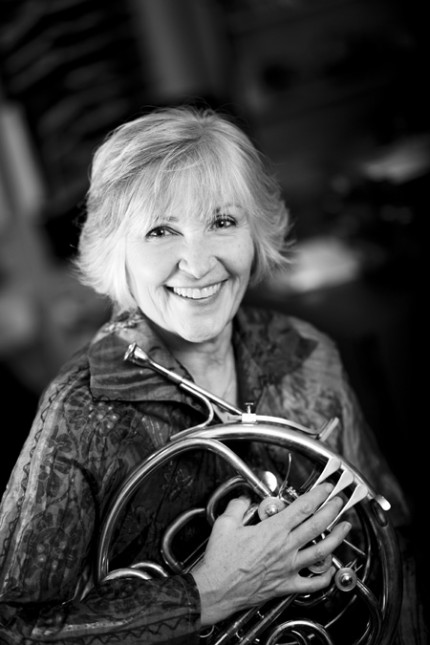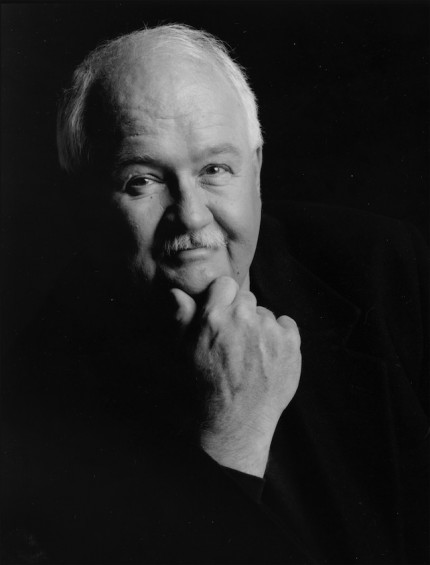Chicago Chamber Musicians offer a compelling evening of contemporary music

For its final Composer Perspectives concert of the season, the Chicago Chamber Musicians served up the kind of smart, discerning program and high-sheen performances that continue to make it one of the city’s finest and most venturesome ensembles.
Monday night’s concert at Ganz Hall was curated by composer Dana Wilson. A long-time collaborator with CCM, Wilson’s program balanced three of his own works with two by colleagues, with the composer also providing convivial introductions.
Wilson’s brief Fanfare led off the evening in clarion fashion. Ganz Hall is a bit too intimate for brass music, but trumpeters Barbara Butler and Charles Geyer and pianist Meng-Chieh Liu provided brilliant advocacy in this syncopated curtain-raiser.
Wilson has written several works for Chicago Chamber Musicians over the past two decades and two were presented Monday night by the CCM artists that inspired them.

Musings for horn and piano was premiered by hornist Gail Williams in 2003. Each of the nine movements reflects a different Greek muse, and Wilson’s response to the various inspirations is clever and consistently inventive. For Euterpe, the muse of lyric poetry, the pianist is called upon to pluck the piano strings like a lyre. In Polyhymnia, the muse of sacred song, both musicians chant softly in the final bars. Thalia, the muse of comedy, is broad and rollicking, and the final take on Terpisichore offers (of course) a whirling bravura dance.
Dedicatee Williams provided velvety tone and easy virtuosity throughout the myriad challenges of this music, matched by Liu’s equally stellar keyboard work.

Wilson’s Liquid Ebony was written for Larry Combs and also premiered in 2003. A clarinet sonata in all but name, it opens (“Call”) with a sleazy clarinet slide seemingly inspired by the opening riff of Rhapsody in Blue, followed by a hectic unsettled opening movement. The middle section, “Prayer” is dark and brooding with the virtuosic finale fully exploiting both instruments’ resources.
Former principal of the Chicago Symphony Orchestra, Combs has maintained his chops superbly as shown in his energized and bravura performance, the clarinetist throwing off the jazz syncopations of the final movement with great panache. Liu was a dynamic partner in the equally demanding piano part — at one point he is called upon to play the keyboard with one hand while reaching inside to strum the piano strings with the other.
Sebastian Currier’s Verge for clarinet, violin and piano was inspired by a movement title from Schumann’s Kinderszenen, “almost too serious.” The idea of pushing but not quite crossing the limits of a specific expression appealed to the composer and each of the nine movements is similarly titled (“almost too fast,” “almost too slow,” etc.).
Currier manages to create a wide variety of music in a piece that elaborates on this “precarious sense of balance.” From the lightly virtuosic running passages that open the work, there is a sad mediation introduced by the violin, a wittily metrical scherzo (“almost too mechanical”) chaotic exuberance (“almost too much”) with the work closing in an atmosphere of relaxed solace (“almost too calm”). Combs, violinist Joseph Genualdi and Liu provided a fizzing performance that brought out all the variegated elements of Currier’s trio.
David Sampson’s Morning Music has its origins in a horrific event, recalling his brother William Evan Sampson’s murder by the Ku Klux Klan in 1979.
The single movement for brass quintet (1995) was written several years later as the composer attempted to come to grips with the tragedy. The music begins with a dark sonority — the two trumpets doubling on flugelhorns — as the trombones intone a dirge-like threnody. The music accelerates and becomes more jagged and cacophonous on its way to an assertive and surprisingly optimistic conclusion. Butler, Geyer, Williams, and trombonists Michael Mulcahy and David Becker delivered a gleaming and technically assured reading that gave Sampson’s deeply felt quintet the strongest possible advocacy.
Posted in Performances


